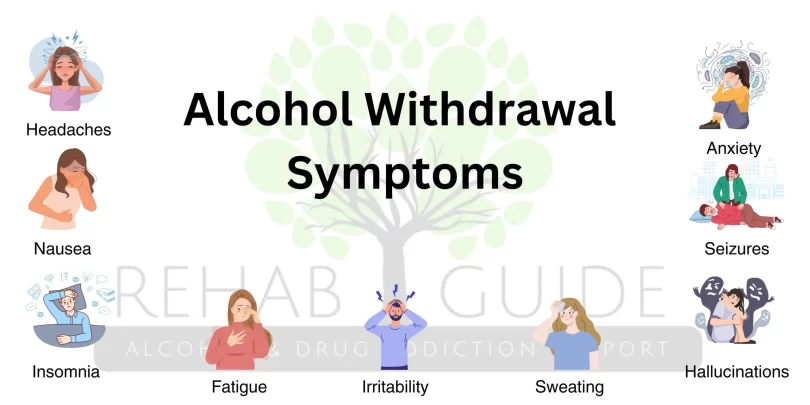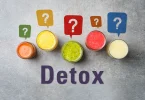Questions Answered in This Article:
- What Happens to Your Body When You Stop Drinking Alcohol?
- Why Does Alcohol Withdrawal Even Happen?
- How Soon Do Alcohol Withdrawal Symptoms Start?
- How Alcohol Withdrawal Is Treated by Medical Professionals
- Why Medical Detox Is Safer Than Going It Alone
If you’ve been drinking heavily for a while and are thinking about quitting, you may have questions—and concerns—about what happens next. It’s not just about willpower. When the body becomes dependent on alcohol, stopping suddenly can trigger serious physical and mental changes.
This is known as alcohol withdrawal, and it’s something that thousands of people experience every year. Understanding the process and being prepared for what lies ahead can help you navigate this challenging journey with more confidence and safety.
Contents
- 1 What Happens to Your Body When You Stop Drinking Alcohol?
- 2 Why Does Alcohol Withdrawal Even Happen?
- 3 How Soon Do Alcohol Withdrawal Symptoms Start?
- 4 Common Alcohol Withdrawal Symptoms
- 5 A Real Look at the Alcohol Withdrawal Timeline
- 6 Dangerous Side of Alcohol Withdrawal
- 7 How Alcohol Withdrawal Is Treated by Medical Professionals
- 8 Medications That Help With Alcohol Withdrawal Symptoms
- 9 Why Medical Detox Is Safer Than Going It Alone
- 10 What About Your Mental Health During Withdrawal?
- 11 What to Expect After Alcohol Rehab
- 12 When to Ask for Help—and Where to Find Alcohol Rehab
What Happens to Your Body When You Stop Drinking Alcohol?
Alcohol withdrawal is your body’s response to the absence of alcohol after prolonged use. When someone stops drinking suddenly, the brain—which has adjusted to functioning with alcohol in its system—starts to panic. That’s why people experience everything from mild anxiety to dangerous seizures when detoxing.
The changes alcohol makes to your body and brain don’t reverse overnight. Withdrawal is a process—and it’s different for everyone. Whether your symptoms are mild or severe, they are a signal that your body needs time, support, and medical attention to recover.
Why Does Alcohol Withdrawal Even Happen?
Alcohol is a depressant, meaning it slows down brain activity. To counterbalance this, your brain increases the production of excitatory neurotransmitters like glutamate. Over time, your body starts to rely on alcohol to maintain this chemical balance.
When you suddenly remove alcohol, your brain doesn’t know how to respond. This leads to overstimulation—causing tremors, racing heart rate, and anxiety. For some, these symptoms escalate rapidly, becoming dangerous.
This is why alcohol withdrawal symptoms aren’t just uncomfortable—they can be serious medical events.
How Soon Do Alcohol Withdrawal Symptoms Start?
When does alcohol withdrawal start? For most people, the first signs begin within 6 to 12 hours of their last drink. That’s not a lot of time. You may go to sleep feeling okay and wake up feeling shaky, nauseated, or mentally foggy.
Initial symptoms can include:
- Sweating
- Increased blood pressure
- Rapid heart rate
- Tremors
- Insomnia
- Anxiety
Because symptoms come on fast and can worsen without warning, many medical professionals recommend starting a medical detox program before quitting alcohol cold turkey.
Common Alcohol Withdrawal Symptoms
Withdrawal symptoms can range from mild to severe. The experience is different for each person, but some of the most commonly reported symptoms include:
- Shaky hands or tremors
- Headaches
- Irritability
- Nausea and vomiting
- Sweating
- Mood swings or depression
- Trouble concentrating
- Confusion
- Sleep disturbances
In more severe cases, life-threatening symptoms like hallucinations, seizures, and delirium tremens may appear. These symptoms require immediate medical attention and should not be underestimated.
A Real Look at the Alcohol Withdrawal Timeline
Understanding the alcohol withdrawal timeline helps people prepare for what’s ahead. Here’s a breakdown of the typical stages:
6–12 Hours After Last Drink:
- Symptoms begin
- Mild anxiety, insomnia, nausea, and tremors are common
12–48 Hours After Last Drink:
- Symptoms intensify
- Some may experience hallucinations or worsening physical symptoms
- Blood pressure and heart rate may spike
48 to 72 Hours:
- Peak of withdrawal for many people
- Risk of severe complications like delirium tremens increases
Beyond 72 Hours:
- Symptoms begin to ease, but some psychological symptoms (anxiety, insomnia) may linger
Wondering how long alcohol withdrawals last? While acute symptoms generally improve after 5–7 days, long term issues like mood swings or fatigue can continue for weeks.
Dangerous Side of Alcohol Withdrawal
Delirium tremens (DTs) is a severe form of alcohol withdrawal that can be fatal without medical treatment. It usually develops 48 to 72 hours after a person stops drinking, but can appear even later in some cases.
Symptoms of DTs include:
- Sudden confusion or disorientation
- Hallucinations (seeing or hearing things that aren’t there)
- Fever
- Extreme agitation
- Seizures
- Unstable blood pressure and heart rate
DTs are a medical emergency. If you or someone you know may be experiencing this, call for help right away. Even people who don’t appear outwardly sick can deteriorate rapidly.
How Alcohol Withdrawal Is Treated by Medical Professionals
Medical detox is the safest and most effective way to manage alcohol withdrawal. During detox, doctors and nurses monitor your symptoms, provide supportive care, and step in immediately if complications arise.
Typical alcohol withdrawal syndrome treatments include:
- IV fluids for hydration
- Nutritional support (especially thiamine)
- Medications to reduce symptoms and prevent seizures
- Constant monitoring of blood pressure, heart rate, and respiratory function
The goal is to ease symptoms, protect your health, and prepare you for the next steps in recovery.
Medications That Help With Alcohol Withdrawal Symptoms
Doctors may prescribe alcohol withdrawal drugs to reduce the severity of symptoms. The most common class of alcohol withdrawal syndrome medication is benzodiazepines, which help calm brain activity and prevent seizures.
Other medications used include:
- Anticonvulsants
- Beta-blockers (to manage blood pressure and heart rate)
- Antipsychotics (for hallucinations or severe agitation)
- Medications to support liver function
Having these treatments administered in a professional setting helps prevent complications—especially if you have underlying conditions like liver disease.
Why Medical Detox Is Safer Than Going It Alone
While it might be tempting to detox at home, it’s rarely safe—especially for those with a long history of alcohol abuse or other health concerns. Many people underestimate how quickly withdrawal can turn dangerous. Without proper medical supervision, symptoms like delirium tremens or severe dehydration can become life-threatening.
Medical detox provides a safe environment with 24/7 medical support, evidence-based care, and emotional reassurance. With the right care, your withdrawal process can be more manageable, reducing the risk of serious complications.
At The Hope House, detox isn’t just about managing symptoms—it’s about supporting your whole person and ensuring you have the best foundation for long-term recovery.
What About Your Mental Health During Withdrawal?
Alcohol withdrawal doesn’t only affect your body—it can also take a significant toll on your mental health. As your brain adjusts to the absence of alcohol, you may experience symptoms like anxiety, depression, irritability, and mood swings. In some cases, these emotional challenges can feel overwhelming.
This is why treatment programs like The Hope House use a dual diagnosis approach to treat both alcohol addiction and any co-occurring mental health conditions at the same time. By addressing both, we help you heal emotionally while you work toward long-term recovery.
What to Expect After Alcohol Rehab
Detox is just the first step. After the physical symptoms fade, your recovery continues. At The Hope House, we help clients develop long-term plans that include:
- Individual and group therapy
- Medication-assisted treatment (when needed)
- Family support
- Relapse prevention strategies
- Lifestyle rebuilding
Long-term recovery is about understanding the root causes of alcohol addiction and learning how to live differently.
When to Ask for Help—and Where to Find Alcohol Rehab
If you’ve tried to stop drinking and experienced withdrawal symptoms—or you’re simply ready for a change—it might be time to seek professional help. You don’t need to hit rock bottom to get support.
At The Hope House, our medically supervised alcohol detox program is designed for safety, comfort, and compassion. We’ll help you manage symptoms, protect your mental health, and begin your recovery with dignity and care.
You’re not alone. Call us at (480) 448-6142 or email [email protected] to take your first step toward healing.







